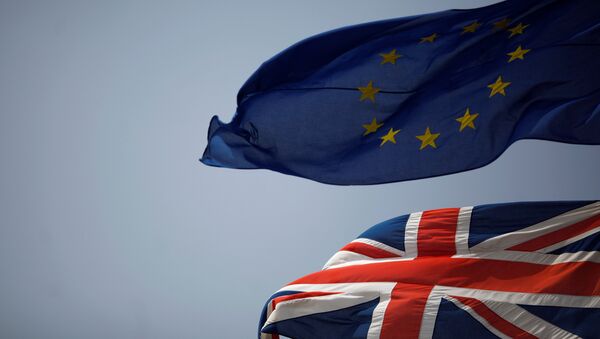MOSCOW (Sputnik) — According to IFO, the German economy will grow in 2016 by about 0.1-0.2 percentage points less than it had previously forecast.
"This is a small effect. It will not endanger the upswing that the German economy has been experiencing for over three years now. We expect an economic downturn in Britain, a depreciation of the British pound, as well as a temporary period of higher uncertainty. That will have a small negative impact on German exports and investments, but this will be short-lived," Timo Wollmershauser, Interim Ifo Director was quoted as saying in the press release.
"We have no historical experience of an exit from the European Union. Even if all future economic relations between Britain and the EU were to be clarified, it would still be difficult to generate forecasts from widely-used empirical models," Wollmershauser added.
On June 23, British voters back the United Kingdom exiting the European Union by a slim majority of 52 percent in favor and 48 percent against.
In June, another German Macroeconomic Policy Institute (IMK) predicted that the negative impact of Brexit on Germany will increase, thus, GDP growth is expected to stand at 1.3 percent compared to the previously predicted 1.8 percent in 2017.



